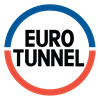Disintegration and disruption are the enemies of every organization
Over the years, organizations learn and adapt. But at some point, a change takes place. The fire and determination of the early years fade, and subsequently the opposite often becomes a reality: the older an organization is, the more unintelligent it becomes. Each system has the natural tendency to disintegrate when no timely adjustments and upgrades are made. This is apart from the threat of disruption.
Organizations have to arm themselves with intelligence
Managers and management have to arm themselves against disintegration and disruption. This can be achieved with nimble and competent staff, proper data, upgrades, agility, and an analytical business culture. Managers no longer make a difference. From day 1, all employees will have to proactively manage and work on the development of intelligence. In this article, we take a look at the most important habits of highly intelligent organizations from both a scientific and practical perspective (source: Business Intelligence book). These organizations are sensitive, smart, fast, and therefore very successful. It would not be smart if we did not learn from it.
Profile of stupid organizations
Highly intelligent organizations thrive thanks to very stupid organizations. Without darkness there is no light. Unfortunately, there are still many stupid organizations. They are reactive, indifferent, negligent, short-sighted, irresponsible, and particularly ineffective. The United Kingdom Consortium also investigated these ‘stupid businesses’. Here, the same picture surfaces as above: these companies mainly want to make a lot of money quickly (short-sightedness), create expectations that are far too high, break promises very easily (irresponsible), are unfair, impersonal and robotic (indifferent), and ineffective.
What are the 7 habits of highly intelligent organizations?
In several scientific studies, the following habits were consistently found among highly intelligent organizations. These are the 7 habits of highly intelligent organizations:
1. They consistently use (big) data proactively
They are characterized by proactive behavior, and not only want to know what has already happened (rear-view mirror) and what is currently visible (side windows), but are constantly looking into the future (wind shield). They consistently use (big) data for analysis and action as well as to figure out the reasons behind business affairs. Furthermore, they develop predictive and prescriptive models. As a result, they’re always one step ahead of the competition. They’re focused on offering the best service independently, and this makes them the best. (Read more about Analytics and Business Intelligence)
2. They know exactly where they want to go: all-round vision
They have developed a firm and powerful all-round vision and related strategy . They identify goals, key performance indicators, and targets in line with their vision, strategy, and mission. And more importantly: employees in the workplace also act accordingly. They begin with the end in mind and they know their purpose. They’re familiar with long-term orientation, are determined, and don’t just downgrade their ambitions. They simultaneously have a discerning eye for detail in an ever-changing world. Goals make them consistent and the management team is a real unit. They use data not only to determine their goals and strategy, but also to test and adjust them (also see 4). (Read more about all-round vision & strategy)
3. They continuously discuss business matters: alignment
Highly intelligent organizations resemble extremely streamlined human machinery. There are no managers or teams available to make decisions that are not in line with the goals and strategy. Furthermore, they apply the principle of “comply or explain”. Everything that is relevant is reconciled with each other as perfectly as possible: organization establishment, goals, data, processes, people and resources. Synthesis always follows analysis. Thus, energy will never be lost. The priorities are accurate and correct.
4. They talk to each other regarding positive and negative performance
Inside highly intelligent organizations, there’s always talk of a win-win, even though sometimes things do go wrong. Mistakes may be made. They have this concept that when no mistakes are being made, nothing new is being tried out, which is disastrous. Based on the philosophy that ‘experimentation = learning’, they always talk to each other regarding positive and negative performance. They see feedback as the ‘breakfast of champions’. Our own research shows that feedback is the dominant factor in becoming a successful organizations.
5. They know their customers through and through and keep them close
They are particularly focused on their customers and consistently apply this principle. They’re very close to the customer, working closely with them (scrum), while prioritizing customer-orientation. Customers don’t get transferred around, as self-directed teams serve the customers from start to finish. This improves the relationship and increases the customer value.
6. They think and work in an agile way
Highly intelligent organizations are not only attentive, but also provide continuous synergy with their customers and with each other. They work in an agile way. Goals and targets are regularly examined and are immediately adjusted where relevant. Sometimes – if necessary – downgraded, but always in an upward direction. The adaptation of the goals and targets also always follows the organizational structure and is adjusted where necessary (also see 3). They have a mentality of never giving up. And that’s understandable, because they truly understand the importance of agility and constantly see new opportunities.
7. They intentionally use data for improvements and innovation
They want to get better every day. They intentionally strive towards making fewer mistakes, and quality awareness and control is deeply embedded in the organization. They ensure that data is as leading as possible in order to improve processes and develop new products (evidence-based). In the meantime, an eighth habit has now been added: innovation. From effectiveness and efficiency to greatness.
Curious about how your organization can become intelligent?
Intelligent organizations perform better across the board. They secure more profits, have more satisfied customers, manage their workforce better, and are more successful with innovation. Please contact us freely and our specialists will gladly tell you more about our approach on how to make your organization permanently intelligent. You may of course also follow one of the courses and masterclasses from our Passionned Academy. Stay ahead of your colleagues and order the Business Intelligence Book ‘Data Science for Decision Makers’.



























